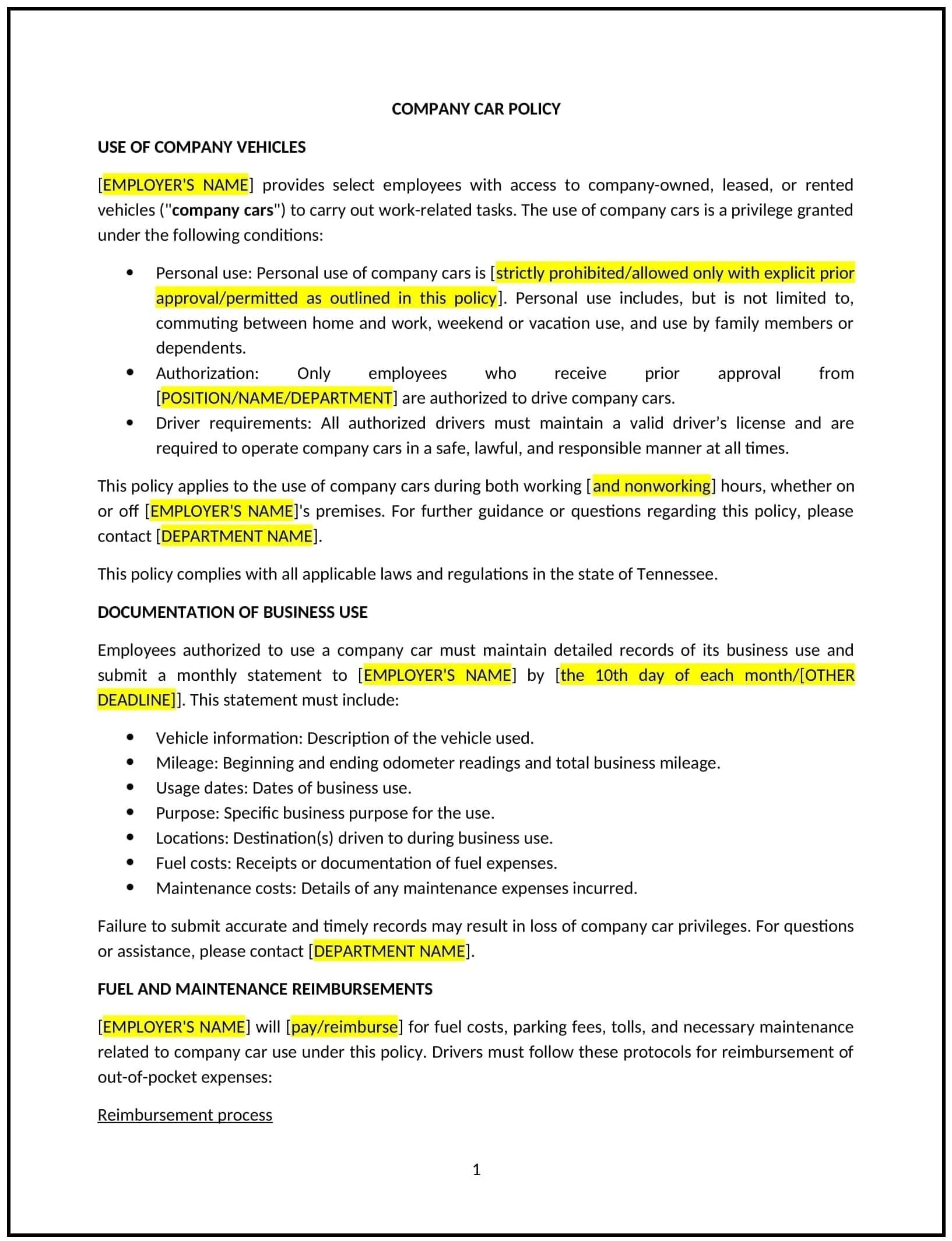Got contracts to review? While you're here for policies, let Cobrief make contract review effortless—start your free review now.

Customize this template for free
Company car policy (Tennessee)
This company car policy is designed to help Tennessee businesses create guidelines for employees using company-owned vehicles. It outlines procedures for vehicle use, maintenance, and reimbursement.
By adopting this policy, businesses can manage vehicle usage effectively, reduce liability, and maintain operational efficiency.
How to use this company car policy (Tennessee)
- Define eligibility: Clarify which employees are eligible to use company cars, such as those with specific job roles or responsibilities.
- Set usage guidelines: Outline acceptable uses for company cars, such as business travel or client meetings, and prohibit personal use unless authorized.
- Address maintenance: Explain how maintenance and repairs will be handled, including reporting procedures and approved service providers.
- Establish reimbursement procedures: Specify whether employees will be reimbursed for fuel, tolls, or other expenses related to company car use.
- Train employees: Educate employees on safe driving practices and the proper use of company vehicles.
- Review and update: Assess the policy annually to ensure it aligns with evolving business needs and legal requirements.
Benefits of using this company car policy (Tennessee)
This policy offers several advantages for Tennessee businesses:
- Manages vehicle usage: Provides clear guidelines to ensure company cars are used appropriately and efficiently.
- Reduces liability: Minimizes the risk of accidents or misuse by setting expectations for employees.
- Maintains operational efficiency: Ensures that company vehicles are well-maintained and available for business needs.
- Enhances accountability: Encourages employees to take responsibility for company vehicles and related expenses.
- Aligns with best practices: Offers a structured approach to managing company car usage.
Tips for using this company car policy (Tennessee)
- Communicate the policy: Share the policy with employees and include it in the employee handbook.
- Provide training: Educate employees on safe driving practices and the proper use of company vehicles.
- Monitor compliance: Regularly review vehicle usage and maintenance records to ensure adherence to the policy.
- Address issues promptly: Take corrective action if company cars are misused or maintenance is neglected.
- Update regularly: Assess the policy annually to ensure it aligns with evolving business needs and legal requirements.